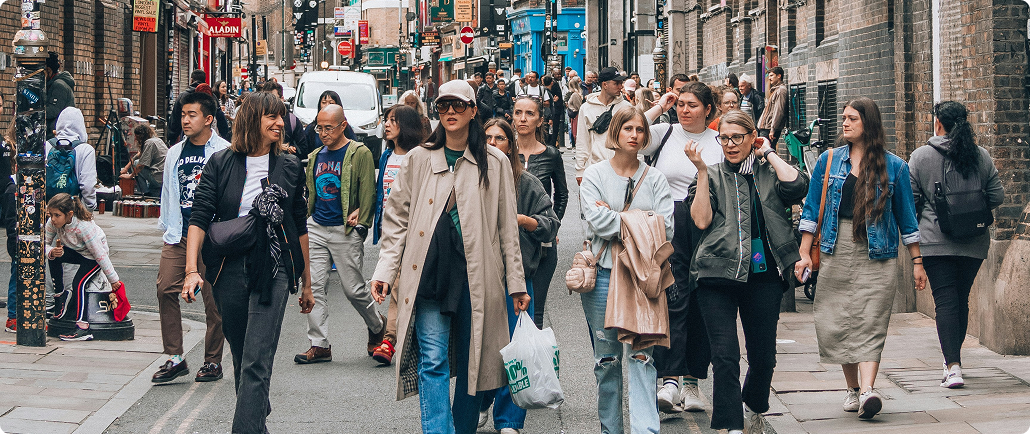
Does Social Anxiety Get Worse With Age?

One-on-One Counseling in Arizona for Life's Challenges
Every day is a chance to start over. Our trauma-informed therapists will meet you where you are — in person or online — so you can process your experiences and become the person you want to be.
Social events like parties and ceremonies can be an exciting moment that many people share together. To people with social anxiety, they can feel like miserable occasions where all eyes are on them. Social anxiety can be a debilitating condition that causes people to miss out on experiences they want to enjoy.
Although the first signs of social anxiety appear during adolescence, it's a condition that can affect people throughout their entire lifetime. This type of anxiety doesn’t go away on its own, and can get worse with age. Let’s take a look at what social anxiety is, how it affects us with age, and how it can be treated.
Aging With Social Anxiety
Social anxiety can get worse with age. According to the National Library of Medicine, social anxiety is a “naturally unremitting condition in the absence of treatment”.
If someone’s social anxiety continues without getting proper treatment, it becomes deeply ingrained in their thoughts and behaviors. These thoughts and behaviors are harder to break as time goes on, and seeking the treatment that is needed to help themselves may become more difficult.
Traumatic life experiences, such as the death of a loved one or chronic illnesses, are also more likely as we get older. This can encourage someone to isolate themselves and make their social anxiety even worse. After living a long life of social anxiety, they may feel helpless and unmotivated to seek relief.
Social Anxiety’s Impact On Physical Health
Social anxiety can also take a major toll on someone’s health, especially as they get older. The persistent anxiety can lead to cognitive complications with memory and concentration. Also, social anxiety can be disruptive to sleep, which contributes to a weakened immune system. Conditions like cardiovascular disease, excessive weight gain, and digestive problems are also common with long term anxiety disorders.
Social anxiety doesn't just affect teens and adolescents. It's a legitimate anxiety disorder that affects people of all ages. The severity of social anxiety worsens with age, so it is important to seek treatment for it as quickly as possible.

Understanding Social Anxiety
Social anxiety is a lasting fear of social situations. Social interactions cause extreme anxiety for those with social anxiety disorder. This could manifest in fears of embarrassment, rejection, and judgment.
It's very common for other conditions, such as depression and panic disorder, to accompany social anxiety. When someone is suffering from social anxiety, they feel introverted, isolated, and unconfident.
Social Anxiety Symptoms
Social anxiety can affect people in several ways. Symptoms can manifest mentally and physically. Some of the major symptoms of social anxiety include:
- Excessive worry about meeting new people, starting conversations, and making phone calls
- Avoidance and excessive worry over social gatherings
- Fear of being watched and judged harshly
- Avoidance of eye contact and self-expression
- Physical symptoms such as sweaty palms and racing heart rate
These symptoms can cause internal complications like racing thoughts, brain fog, and extreme nervousness. Physically, someone with social anxiety may experience sweating, muscle stiffness and nausea. The additional complications exacerbate the social anxiety, and may eventually lead to panic attacks.
Check out our other article, Signs of High-Functioning Anxiety, to learn about a different way anxiety can be expressed.

Where Does Social Anxiety Come From?
Social anxiety can stem from two main sources: genetics and environment. Genetically, it can be passed down from a parent to child. Someone is more likely to have social anxiety if a parent or sibling also suffers from it.
Some people are genetically predisposed to having an overactive amygdala too, which is the part of the brain that controls fear response. This makes them much more prone to many anxiety disorders like social anxiety.
Someone’s environment can play a large role in the development of social anxiety. Particularly traumatic or embarrassing events, especially during childhood, can lead to lifelong anxiety issues. Some of these traumatic and embarrassing events include:
- Bullying from peers
- Abuse from family
- Public embarrassment
- Intense stage fright during public performance
Whether it was passed down genetically or acquired through a stressful environment, social anxiety can be a persisting issue throughout someone’s lifetime.
Finding Relief From Social Anxiety
With the help of healthy coping mechanisms and proper treatment, people of all ages can experience drastic relief from social anxiety. Cutting out unhealthy coping mechanisms like avoidance, isolation, and alcohol is a great first step when developing positive social skills. Although they may provide temporary relief, these unhealthy coping strategies only prolong social anxiety.
Instead, replace these bad habits with healthy coping mechanisms. Some healthy coping strategies to overcome social anxiety are:
- Staying present in the moment
- Visualize yourself being confident before a social engagement
- Use deep breathing exercises to remain calm
- Desensitize yourself by taking gradual steps in overcoming your fears
Micro Mediation is a helpful tool used to curb anxiety. Read our related article, What is Micro Meditation?, to learn more about calming the mind during stressful occasions.
Lifestyle Changes
There are changes that you can make to your daily life that will help overcome social anxiety too. Eating a balanced diet, exercising regularly, and getting enough rest are healthy habits that are also known to play a large role in your mood and mental health.
If social anxiety in the workplace is a major stressor, try switching to working remotely. Although it may come with new challenges, people who have experienced workplace anxiety have noticed improved productivity and mental health since going remote.
Treatment For Social Anxiety
Seeking treatment from a professional therapist is a critical component in overcoming social anxiety. It is generally recommended for people who suffer from social anxiety to start with online therapy. Meeting with a therapist virtually is an easier way to get the help you need without provoking the negative reactions of social anxiety.

If you suffer from social anxiety, it is important to start treatment as quickly as possible. Although the symptoms only get worse with age, it is never too late to start working towards a healthier lifestyle. To start overcoming your social anxiety, request a consultation with one of our therapists that are professionally trained in providing the skills you need to live a healthy and anxiety-managed life.
Related blog articles
Sign up for our newsletter
Sign up with your email address to receive news and updates.
Get started
Request a consultation

-03%201.png)




